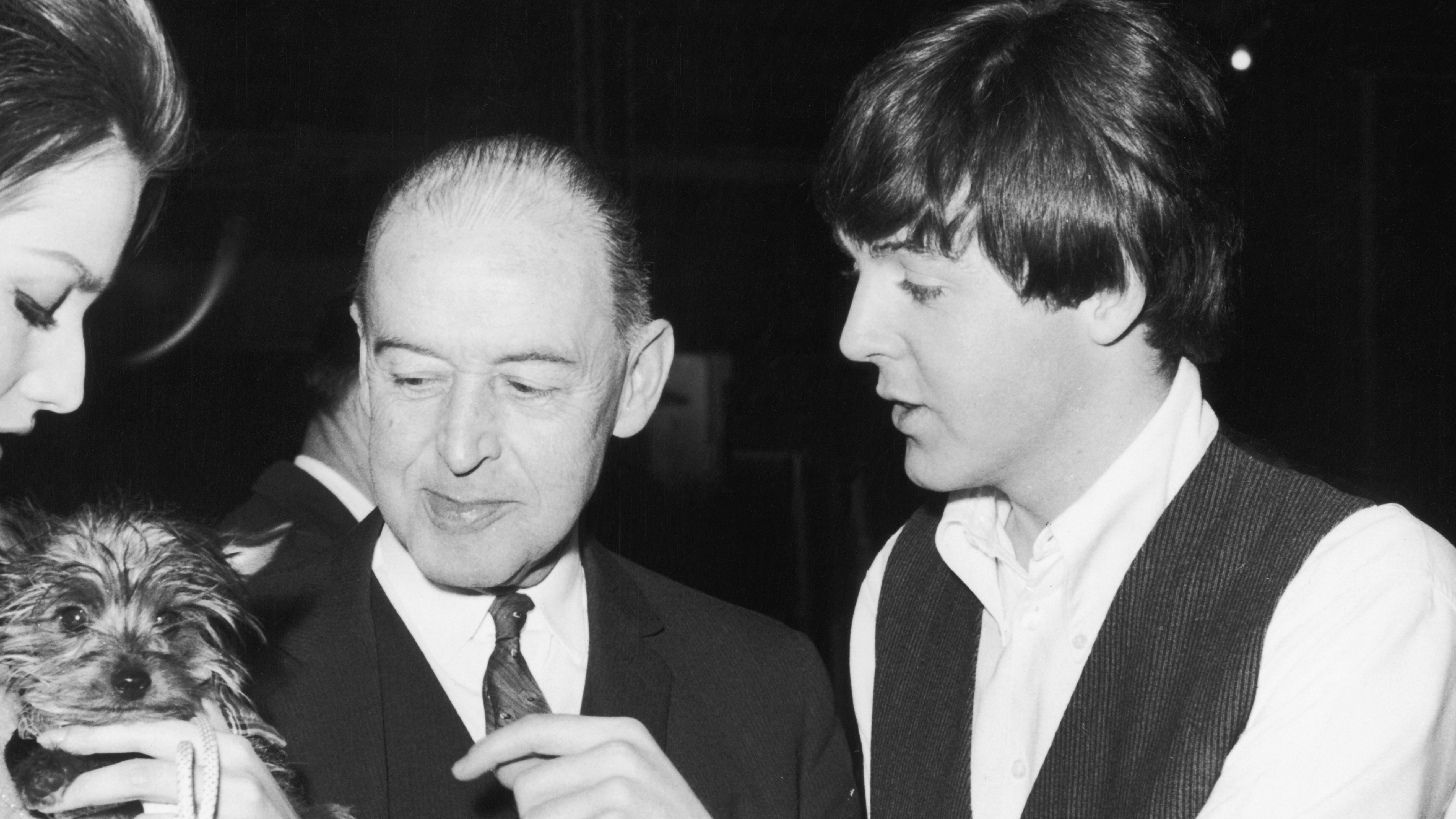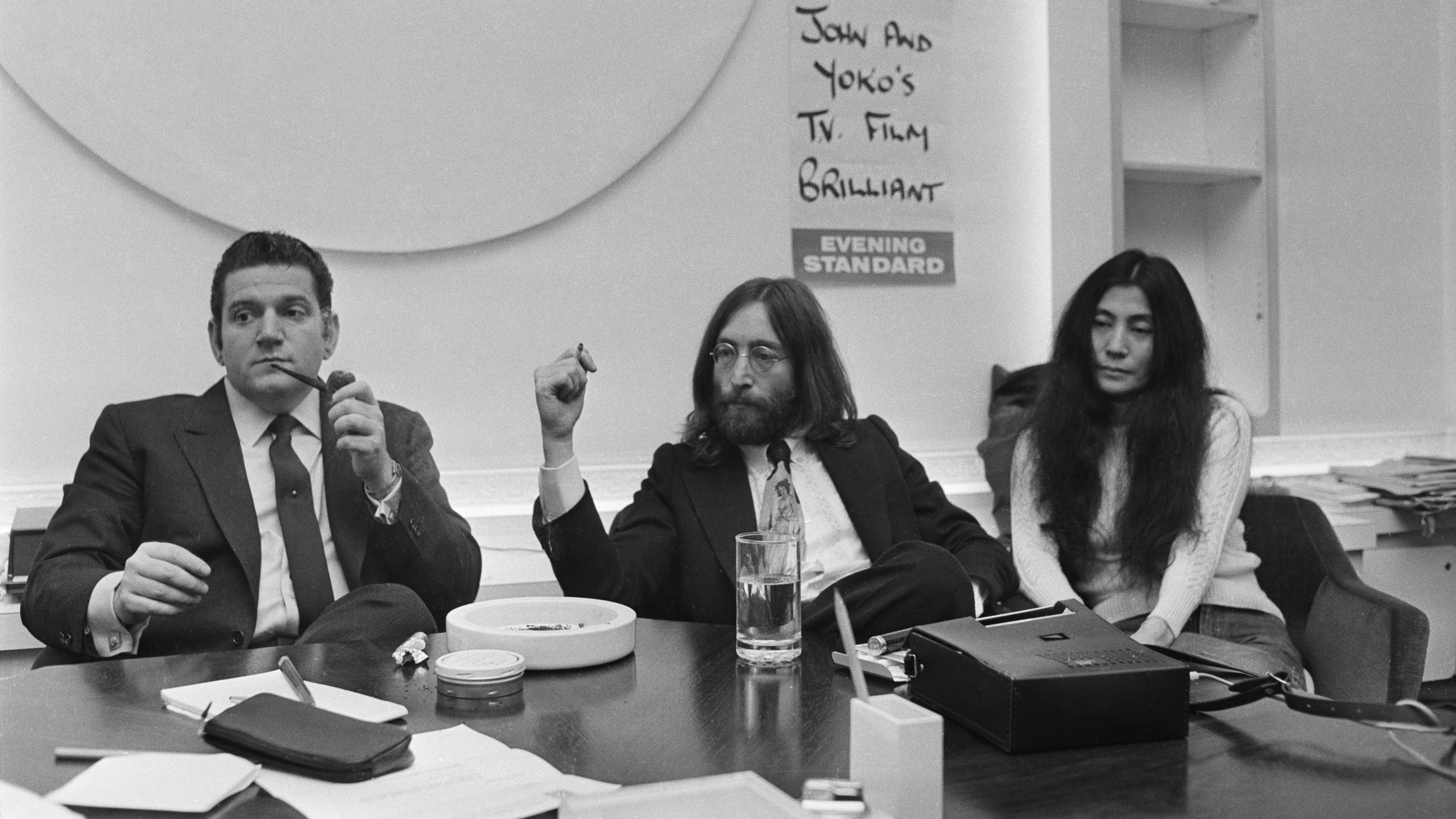"Because I don't read music, I didn't know what the melody that went with it was": Paul McCartney explains why his musical limitations and "stealing" benefitted the Abbey Road medley that gave us The Beatles' true swansong

Want all the hottest music and gear news, reviews, deals, features and more, direct to your inbox? Sign up here.
You are now subscribed
Your newsletter sign-up was successful
In the latest episode of iHeartPodcast series McCartney: A Life In Lyrics, The Beatles' grand finale to the Abbey Road album is under the microscope with the songwriter and host, poet Paul Muldoon. The closing medley of the 1969 album's mini-suite with Golden Slumbers, Carry That Weight and The End of captured the ambition and inventiveness of the band, but Paul McCartney's songwriting is its centre. And he explained the roots of Golden Slumbers especially actually go back to discovering a piece of sheet music his step-sister Ruth had.
"I always look in a piano bench seat because people always have sheet music in there – they always used to, definitely," remembered McCartney in the podcast interview. "Now, sometimes they can be empty, but I always look to see. This time it was either in the piano seat or it might have been up on the music stand, it was this song Golden Slumbers."
The original Golden Slumbers is a Victorian lullaby by Peter Warlock in 1918, written to accompany a 17th poem called Cradle Song by Thomas Dekker from the 1603 comedy Patient Grissel. Dekker's poem would directly inspire McCartney.
"Golden slumbers fill your eyes / Smiles await you when you rise / Sleep, pretty baby, do not cry / And I will sing a lullaby – that chorus that I've used was literally the lyrics to an old Victorian song," admitted McCartney.
I put my own melody to it and just took these words
Paul McCartney
When Muldoon asked him if it was an early version of sampling – McCartney joked, "Well it's called stealing. But because I don't read music, I didn't know what the melody that went with it was. So I put my own melody to it and just took these words.
"It's turned out to be quite soulful," McCartney reflected. "I think that's attracted me those lyrics in the first place. It's like consoling a baby or reading kids a bedtime story. I find there's something very deep in that. Very human and international – it strikes a chord with me."
Want all the hottest music and gear news, reviews, deals, features and more, direct to your inbox? Sign up here.
This human, grounded element of Paul McCartney's songwriting again goes back to his upbringing around the piano with the warmth of his family.
"I always thought my family was just an ordinary family, but I realise now how lucky I was to have that kind of a family," he told Muldoon. "Where people were decent, good, friendly people – not rich, nobody had any money, but that was almost an advantage because they had to do things themselves."
It's very possible I was feeling down in London, went back up to see my dad and was feeling better now I was in Liverpool and thinking of the troubles down south
This echoes in McCartney's piano approach – he had never read music but his sophisticated songwriting mind channeled Bach in Revolver's romantic Here There And Everywhere. Abbey Road's closing medley found an older McCartney reflecting on where he'd come from – and what it meant. But he's not initially convinced he was thinking about his band at the time when he wrote his own lyrical additions to The Beatles' Golden Slumbers.
"I think that's too much to say," he told Muldoon, but then he seemed to question his own response. "But it would have been written around that time and who knows, I could have been feeling down… I actually can't tell if this is true or not but it's very possible I was feeling down in London, went back up to see my dad and was feeling better now I was in Liverpool and thinking of the troubles down south and [wondering], wouldn't it be nice to get home. Wouldn't it be nice to have that comfortable feeling again."
He found something close to that at his father Jim's house called Rembrandt, in Heswall, Cheshire.


"I did the other bit – 'Once there was a way to get back home'. I think at that point I hadn't been home for a long time, and here I was at my dad's house. Now this wasn't quite home because it was a house I'd bought him when I got some money. So it wasn't quite home but it was Liverpool and it was homeward."
Carry That Weight was another matter. At the time the four Beatles were beginning to get embroiled in the business meetings and disputes around manager Allen Klein that would eventually fracture the band for good. McCartney was famously not onboard with Klein, but the song also references the musicians moving past the "light relief" of smoking pot that they started with, to "more serious stuff" like LSD. "This idea of 'boy you're gonna carry that weight' was sort of, life's not all joyous – there's a weight to it and you're going to have to carry it."
From lullaby to comedown, the last part of the suite before the brief closer Her Majesty saw The Beatles regroup and cut loose as musicians with guitar solos from McCartney, John Lennon and George Harrison – plus a drum solo from Ringo Starr.
"The thing that always amused me was how much persuasion it took to get Ringo to play that solo," the late Abbey Road engineer Geoff Emerick told us back in 2014. "Usually, you have to try to talk drummers out of doing solos! [laughs] He didn't want to do it, but everybody said, 'No, no, it'll be fantastic!' So he gave in - and turned in a bloody marvelous performance!"
The guitar solo session even saw Lennon give the omnipresent Yoko Ono her marching orders – at least for a few minutes.
"The idea for guitar solos was very spontaneous and everybody said, 'Yes! Definitely' - well, except for George, who was a little apprehensive at first," remembered Emerick. "But he saw how excited John and Paul were so he went along with it. Truthfully, I think they rather liked the idea of playing together, not really trying to outdo one another per se, but engaging in some real musical bonding.
Yoko was about to go into the studio with John – this was commonplace by now – and he actually told her, 'No, not now. Let me do this.'
Geoff Emerick
"Yoko was about to go into the studio with John - this was commonplace by now - and he actually told her, 'No, not now. Let me just do this. It'll just take a minute,'" observed Emerick. "That surprised me a bit. Maybe he felt like he was returning to his roots with the boys – who knows?"
McCartney was no stranger to guitar solos in the Fab Four – Back In The USSR, Taxman, Good Morning Good Morning, Drive My Car, Tomorrow Never Knows and Another Girl all feature leads from him. But it was a role he decided was not for him full-time early on with the band.
"We had this gig and it was like, the first thing I ever played, and I was lead guitar player," McCartney told Muldoon on a previous podcast episode. "John [Lennon] was rhythm, and I had a solo and I totally froze… could not move my fingers. ... It was like, just so embarrassing. My lead guitar playing career melted at that moment and I said, 'Well, I'm not doing this again. I'm not cut out for this. I'm no good.'"
McCartney's legendary closing 'And in the end the love you take, is equal to the love you take' line adds cinematic gravitas to the solo hijinks that precede it. On reflection, The End feels like a musical conclusion to The Beatles story, especially as it is reportedly the last song all four Beatles recorded together in person.
"You could really see the joy in their faces as they played; it was like they were teenagers again," noted Emerick. "One take was all we needed. The musical telepathy between them was mind-boggling."

Rob is the Reviews Editor for GuitarWorld.com and MusicRadar guitars, so spends most of his waking hours (and beyond) thinking about and trying the latest gear while making sure our reviews team is giving you thorough and honest tests of it. He's worked for guitar mags and sites as a writer and editor for nearly 20 years but still winces at the thought of restringing anything with a Floyd Rose.

